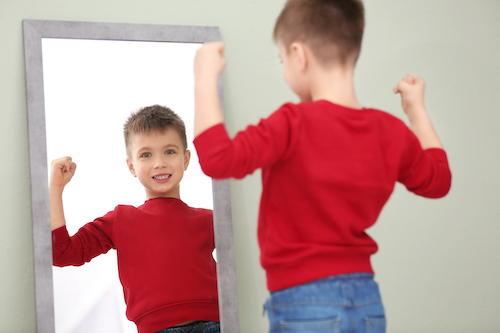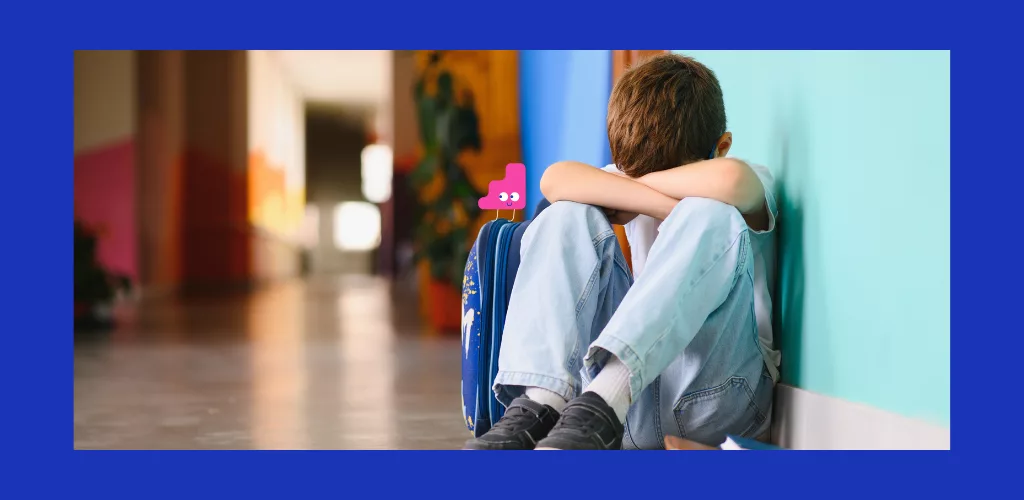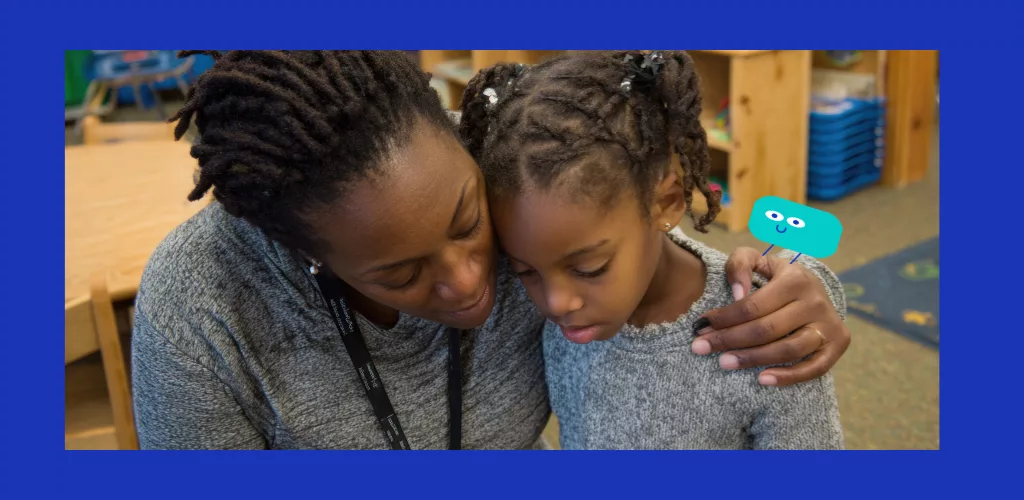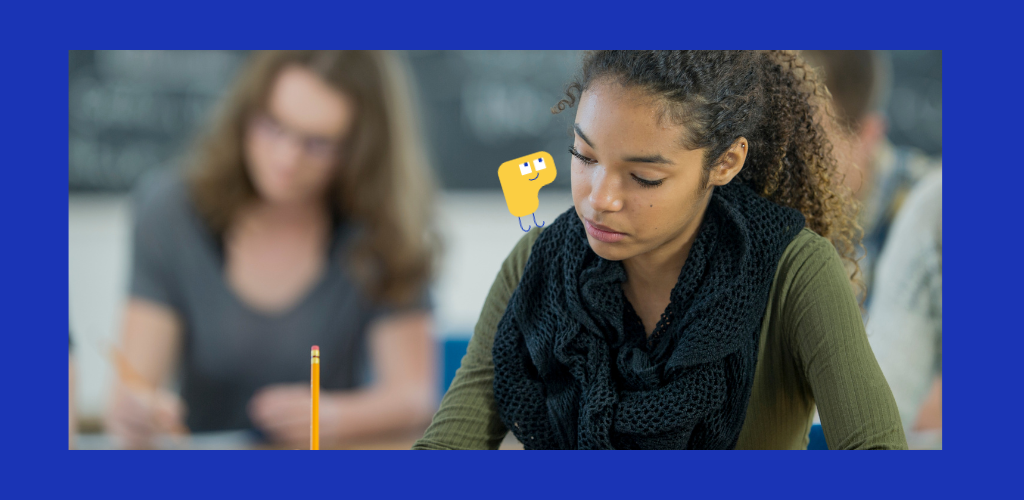"Mirror, mirror, who is the fairest of them all?" in Snow White, the witch-queen worries about her own beauty and the image she portrays. Shaving in front of a mirror in the morning might make you want to become president... But what about our kids? You've probably asked yourself this famous question when you look in the mirror: "Who am I? It's a question of self-concept, and our kids are sensitive to it too.
The concept of self is linked to autobiographical memory. This memory is our identity, what we have built up over time, what we know about ourselves. We develop it from childhood, with each of the expressions and interactions of our daily lives.
Today, educational experts and psychologists agree on the importance of self-concept within a child's personal and social development.Researchers agree on the influence of self-concept on cognitive and emotional behaviors and outcomes, with consequences for academic success, levels of happiness, anxiety, social integration, self-esteem and life satisfaction.
At Soft Kids, we're here to help you get the most out of your kids, so I'm going to explain everything you need to know about your kids' self-concept!
What is "self-concept"?
The psychological meaning of self-concept is to define it as a relatively objective belief on which we can put words to describe ourselves to others.
It combines :
- Self-image, which is the cognitive or descriptive part of oneself, for example, "I'm an artist".
- Self-esteem, which has to do with evaluation and opinion (for example, "I like the fact that I'm an artist"). Self-esteem concerns the individual's self-image and self-confidence.
The self-concept was described by Charles Cooley in 1902. He states that self-concept is dependent on how others perceive and evaluate us. Thus, the most important people in a person's life (parents, partner, close friends, etc.) have an even stronger effect on self-concept.
Needless to say, the better your self-image, the better you'll feel about yourself. Self-concept therefore has a significant influence on whether a person is positive and confident, or negative and lacking in self-confidence.
But how can we ensure that our kids develop both a good self-image and self-esteem?
When do our children start to develop their "self-concept"?
This concept develops throughout life, but an important stage in its formation takes place during childhood, greatly influenced by the social interactions experienced by children.
As soon as children acquire self-awareness at around 18 months, the self-concept begins to develop. Children will first describe themselves physically: "I'm a boy, I'm tall, I have blue eyes, etc.". Then they like to list their possessions: "I have a bike, a doll, etc.". Finally, they'll express what they like and don't like to do, or eat, for example.
In elementary school, children become more adept at describing themselves with adjectives. They're able to make lists of qualities and defects, especially when it comes to their peers. This is the beginning of comparisons.
The first social interactions take place within the family and at school, which is why it's important to be vigilant about any compliments or criticism your children may receive, whether from family, friends or school staff.
The need to be aware of what you've learned
Developing self-concept is all about realizing what you've achieved. If your child becomes aware of his achievements and how far he has come since he was born, he will become more aware of his abilities and his self-confidence will grow.
At Soft Kids, we ask children to make a list of everything they've learned to do since they were born. And the list they give us is usually very, very long!
In fact, when we're in primary school, we don't take the time to appreciate how far we've come, because we spend more time thinking about the next thing we're going to do. Children are always in a hurry to become teenagers and then adults, so they can do all the new things that were previously forbidden to them...
But sit down with your child for a moment, get out the photo albums (or your phones!) and tell him all about his learning: walking, talking, eating, getting dressed, riding a bike, drawing, etc.
By becoming aware of all his achievements, your child will develop a good self-image and self-esteem, which will contribute to his self-confidence.
How can you help your child learn?
Once your child is aware of everything he's learned to do and succeeded at, he'll continue to learn on his own, trying new things and gaining independence, which will develop his self-concept!
Here are a few tips to accompany it:
Never do things for them: As parents, we must accompany and support our children as they learn, but never do things for them. We must only intervene if they ask us to. Many parents are tempted to act in their children's place, or to answer for them when an adult asks a question. But that's not doing them any favors.
Observe: it's important to observe them and let them know that we're there for them if they need us. Observation also gives us an idea of what they can and can't do. If your child has difficulty doing something new with your support, don't insist. He's probably not yet ready to learn.
Encouragement: you need to encourage your child to give them confidence in their abilities.
Listening: develop critical thinking skills by asking questions and listening to answers. The more a child sees that his or her voice counts, the more self-confidence he or she will have.
In short, find time with your children to make them aware of what they've learned, and support them in their learning. This will give them a good self-image/self-esteem, and they'll feel "good about themselves" as soon as they look in the mirror!
Have a great weekend, superparents!
Solenne.
Founder of Soft Kids and mother of 3 super kids!








0 comments